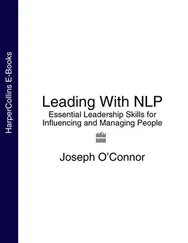John Gray - Children Are from Heaven - Positive Parenting Skills for Raising Cooperative, Confident, and Compassionate Children
Здесь есть возможность читать онлайн «John Gray - Children Are from Heaven - Positive Parenting Skills for Raising Cooperative, Confident, and Compassionate Children» весь текст электронной книги совершенно бесплатно (целиком полную версию без сокращений). В некоторых случаях можно слушать аудио, скачать через торрент в формате fb2 и присутствует краткое содержание. Год выпуска: 1999, ISBN: 1999, Издательство: HarperCollins e-books, Жанр: psy_childs, sci_pedagogy, Психология, на английском языке. Описание произведения, (предисловие) а так же отзывы посетителей доступны на портале библиотеки ЛибКат.
- Название:Children Are from Heaven: Positive Parenting Skills for Raising Cooperative, Confident, and Compassionate Children
- Автор:
- Издательство:HarperCollins e-books
- Жанр:
- Год:1999
- ISBN:978-0-06-133886-1
- Рейтинг книги:4 / 5. Голосов: 1
-
Избранное:Добавить в избранное
- Отзывы:
-
Ваша оценка:
- 80
- 1
- 2
- 3
- 4
- 5
Children Are from Heaven: Positive Parenting Skills for Raising Cooperative, Confident, and Compassionate Children: краткое содержание, описание и аннотация
Предлагаем к чтению аннотацию, описание, краткое содержание или предисловие (зависит от того, что написал сам автор книги «Children Are from Heaven: Positive Parenting Skills for Raising Cooperative, Confident, and Compassionate Children»). Если вы не нашли необходимую информацию о книге — напишите в комментариях, мы постараемся отыскать её.
Children Are from Heaven: Positive Parenting Skills for Raising Cooperative, Confident, and Compassionate Children — читать онлайн бесплатно полную книгу (весь текст) целиком
Ниже представлен текст книги, разбитый по страницам. Система сохранения места последней прочитанной страницы, позволяет с удобством читать онлайн бесплатно книгу «Children Are from Heaven: Positive Parenting Skills for Raising Cooperative, Confident, and Compassionate Children», без необходимости каждый раз заново искать на чём Вы остановились. Поставьте закладку, и сможете в любой момент перейти на страницу, на которой закончили чтение.
Интервал:
Закладка:
Time outs are to be used
as a last resort.
Even though the body needs vitamin C, it has other needs as well. Vitamin C alone will not keep a body healthy.
If you are vitamin C deficient, then it will make a big difference to your health because your body needs it. If you have enough of the other required vitamins, you will notice an immediate improvement in health. If you only get foods with vitamin C and ignore your other needs, then even vitamin C will not make much difference in keeping you healthy. In a similar way, each of the five steps of positive parenting is equally important to create cooperation.
2. Not Enough Time Out
While some parents rely too much on time out, others don’t use time out enough. They complain their children just will not listen. For example, one mother complained, “I ask him to stop jumping on the bed and he just laughs at me and keeps jumping.”
This is a clear sign that this mother is not giving enough time outs. A time out gives a parent control. If a child just laughs and ignores you, then clearly this child is out of control and needs more time outs. This parent needs to pick the child up and move him into another room for a time out.
If a child just laughs and ignores you, then
clearly this child is out of control.
Some parents conclude that a time out doesn’t work, because the next day the child goes out of control again.
These parents mistakenly assume that if time outs were working, their child would always cooperate and not resist.
A time out does not break a child’s will and create obedience. It strengthens a child’s will, but also nurtures her willingness to cooperate.
Children will be children and will go out of control. The regular need for time out doesn’t mean it doesn’t work.
Active children in particular and little boys will tend to need more time outs. If your child needs more time outs, it doesn’t mean something is wrong with your child or your parenting approach. It is simply what your child needs at this stage in their development. There is no right number of time outs. It could be two a day, two a week, or two a month, or two a year. Every child is unique.
If your child needs more time outs, it doesn’t
mean something is wrong with your child or
your parenting approach.
Soft-love parents use time outs, but generally not often enough. Instead of commanding cooperation, soft-love parents tend to cave in and give too much to the child. They can’t bear to hear the child scream, so they routinely placate the child.
Their child may so fiercely oppose a time out that parents will do anything to avoid a confrontation, even if that means giving in and doing what the child wants. When children become too demanding or bossy, it is a clear sign that the parents are not maintaining control with an adequate number of time outs.
3. Expecting Your Child to Sit Quietly
Some parents misunderstand the whole purpose of a time out. They expect the child to sit quietly and cool off. Instead of giving a time out for the child to feel and release negative emotions, these parents discourage the child from getting upset.
They give messages like, “If you continue to resist then your time out doesn’t begin until you stop.”
A time out works because it gives children the opportunity to resist more. Encouraging your children to give up resisting and sit quietly instead is not a time out. Children should feel free to resist a time out. They are not supposed to like it, and they are not supposed to be quiet.
Children should feel free to resist a time out.
There is nothing wrong with giving a child a cooling off period. This is a form of redirection and one of the nurturing skills. If children are getting hyper and resist cooperating, then having them cool off by sitting in a corner or on a special bench is fine. This is similar to having children take naps when they become too fussy and resistant to direction.
A cooling-off period is not the same as a time out. In a cooling-off period, children are encouraged to be quiet and may even be rewarded for taking some time to cool off.
Cooling off does not encourage children to move through their feelings. The first step in learning to manage negative feelings is to feel them and release them. As children get older (around the age of nine), they are able to feel and release emotions without a time out.
Just cooling off does not encourage children
to move through their feelings.
A parent might say to an argumentative teenager, “This isn’t working. I want you to take some time in your room to cool off and then we can talk again.” This cooling off is all the teenager may need. While this is similar to a time out, it is still different; it is just directing your teenager to another activity to lessen resistance.
If the teenager resisted and the parent commanded and the teenager still resisted, then it would be a time out. The teenager would eventually storm away to his room. At such times, the parent must be very careful not to reprimand the child for resistance, but to continue commanding until the child goes into his room. When the teenager comes out, he will seem to be a different person.
4. Using Time Out as Punishment
The fourth mistake parents make is to use time out as a punishment. Although children may feel they are being punished by time outs, a parent must be careful not to use a time out as a punishment. As we have already discussed, fear-based parenting uses the threat of punishment to deter children from misbehaving. The threat of a time out can easily be misused to control a child. Quite often, parents will give a warning or signal saying, “If you don’t stop you will have to go take a time out.” This warning will stop children in their tracks as if the parent had said, “If you don’t stop, I will tell your father when he gets home” or “If you don’t stop, I will spank you.”
Threats have worked for centuries, but in a free society fear-based parenting comes back to haunt us. The more parents use punishment, the more their children will rebel later.
Many adults today still can’t connect or don’t feel a desire to connect with their parents because they were punished.
HUGGING DAD
When I became an adult, I had a great relationship with my dad. When I started teaching seminars on relationships, he was the first member of my family to attend. He would fly out to California from Texas to take my seminars. In these seminars, one of the exercises was learning to hug people.
I noticed that when I would hug people I could easily feel a warm connection. Yet, when I hugged my dad, although we had a loving and supportive adult relationship, I could only feel a slight connection. It was as if there was a wall separating us. I could hug a stranger and feel a lot more warmth and connection.
I asked my friends, who had hugged my dad, what their experience was. They said he was warm and friendly. They felt the connection, but I didn’t. I realized that this was from years of disconnecting with my natural desire to be guided by him. I was a good, obedient child, because of the fear of punishment.
As an adult, it took another ten years of self-therapy and participating in workshops to heal unresolved feelings before I could feel my connection with my dad when I gave him a hug. If he had known the techniques of positive parenting, he would have been happy to use them, and I would not have needed to heal these unresolved issues.
Using a time out as a threat will work in the short run, but in the long run the delicate and tender desire to cooperate with the parent is gradually weakened. Certainly, a time out is a much better punishment than taking things away or hitting, but it is still less than the best for your child.
Читать дальшеИнтервал:
Закладка:
Похожие книги на «Children Are from Heaven: Positive Parenting Skills for Raising Cooperative, Confident, and Compassionate Children»
Представляем Вашему вниманию похожие книги на «Children Are from Heaven: Positive Parenting Skills for Raising Cooperative, Confident, and Compassionate Children» списком для выбора. Мы отобрали схожую по названию и смыслу литературу в надежде предоставить читателям больше вариантов отыскать новые, интересные, ещё непрочитанные произведения.
Обсуждение, отзывы о книге «Children Are from Heaven: Positive Parenting Skills for Raising Cooperative, Confident, and Compassionate Children» и просто собственные мнения читателей. Оставьте ваши комментарии, напишите, что Вы думаете о произведении, его смысле или главных героях. Укажите что конкретно понравилось, а что нет, и почему Вы так считаете.












